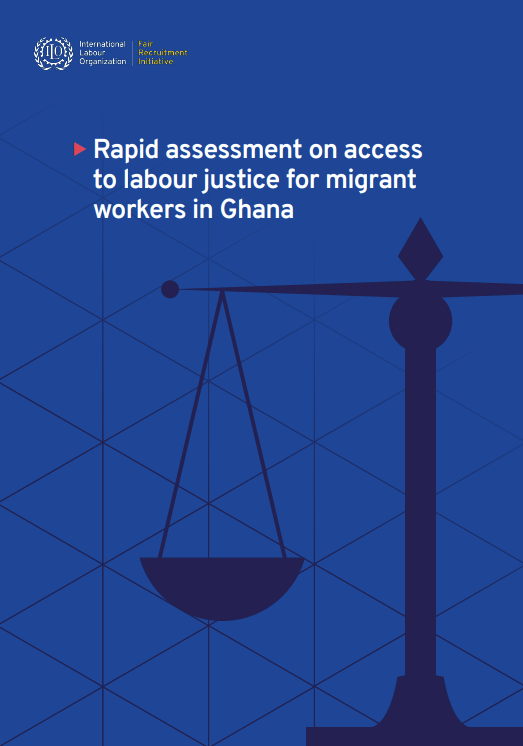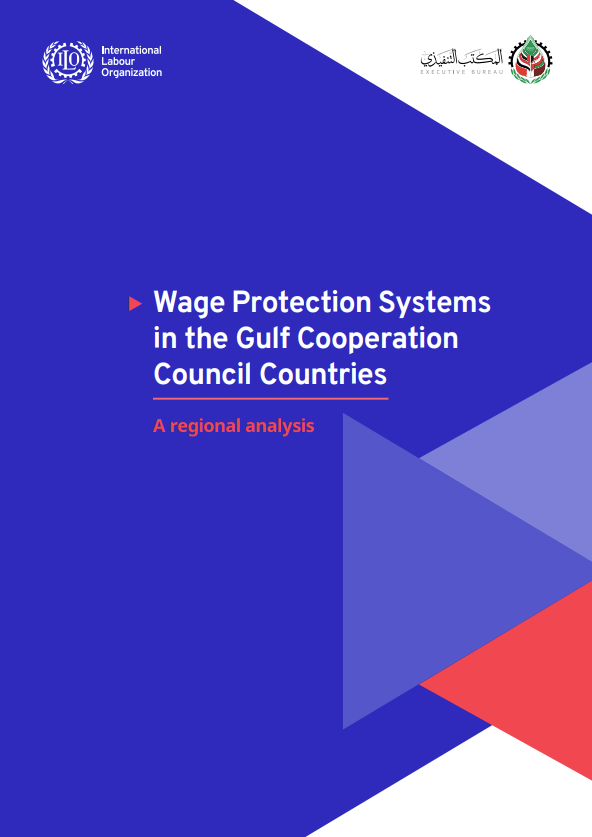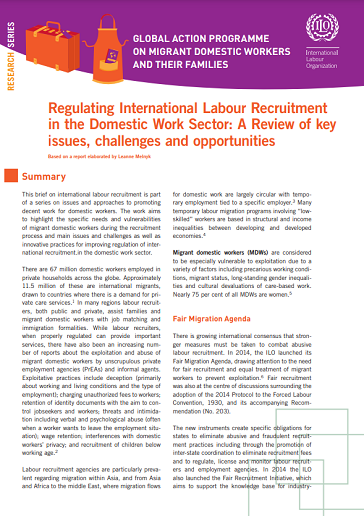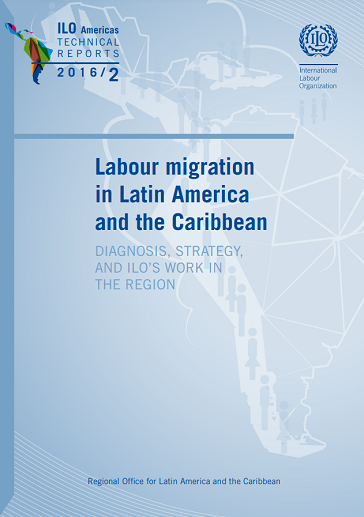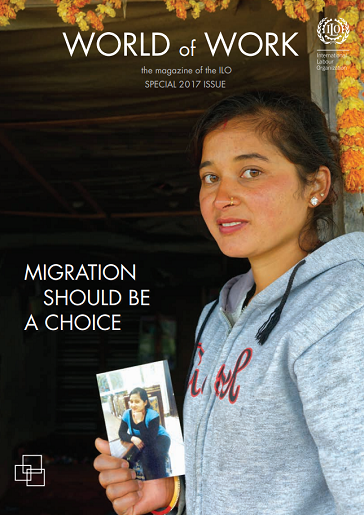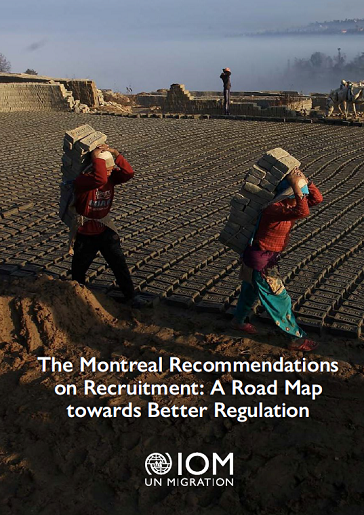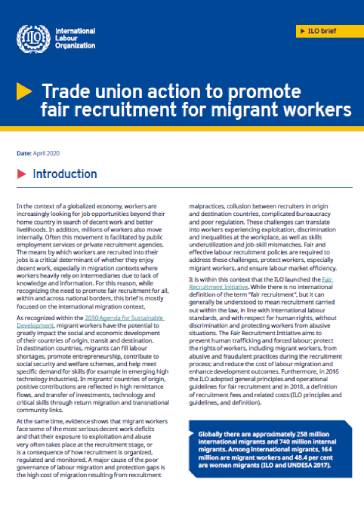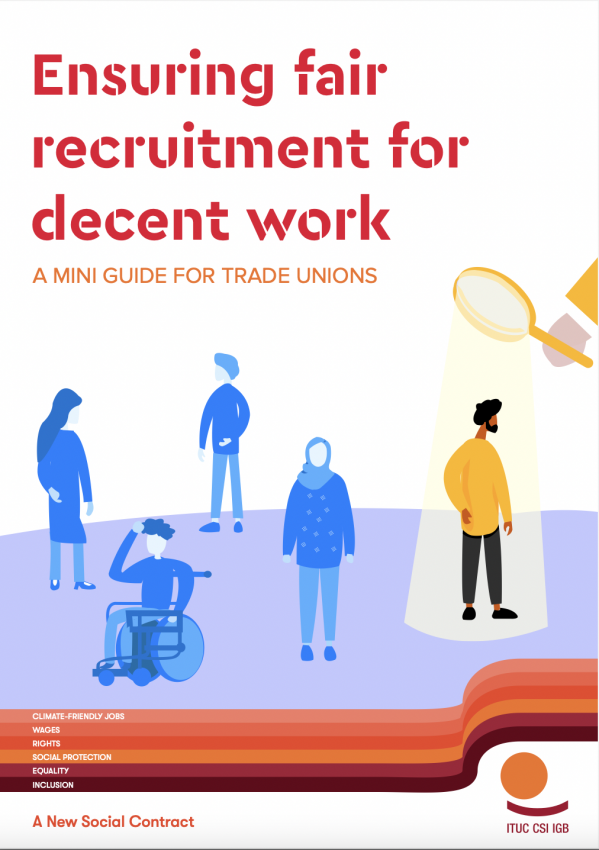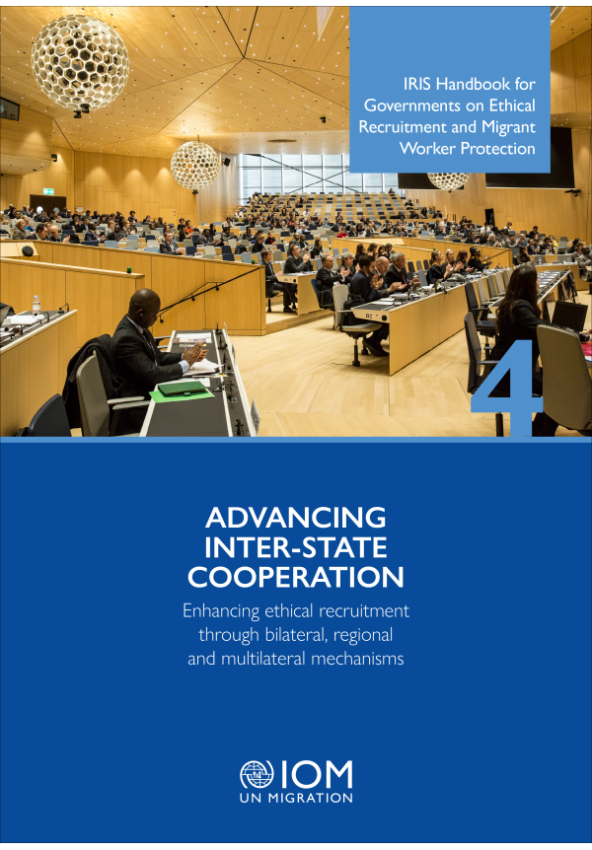Rapid assessment on access to labour justice for migrant workers in Ghana
This study examines how Ghanaian migrant workers access labour justice and seek remedies for employment-related grievances, both in Ghana and in destination countries. Conducted under the ILO’s Integrated Programme for Fair Recruitment (FAIR Phase III) and funded by the Swiss Agency for Development and Cooperation, it is based on mixed methods research, including desk review, key informant interviews with relevant institutions, and focus group discussions with returnee migrants. The study maps existing formal and alternative grievance and dispute resolution mechanisms, assesses their effectiveness, and identifies structural and practical barriers that limit migrant workers’ access to justice.
Against the backdrop of Ghana’s evolving migration landscape, marked by increasing labour migration to the Gulf and Middle East, particularly among women in domestic work, the study analyses the national legal and institutional frameworks aligned with international labour standards. Despite the existence of these mechanisms, migrant workers often face significant obstacles, including limited awareness of their rights, high financial costs, bureaucratic delays, weak enforcement, and fear of retaliation or deportation. These challenges are especially acute for women, who encounter gender-specific risks such as restricted mobility, social stigma, and heightened vulnerability to exploitation and abuse.
The study further highlights the role of trade unions, civil society organisations, and recruitment agencies in supporting migrant workers, while underscoring persistent gaps in coordination, resourcing, enforcement, and outreach. It concludes that improving access to labour justice requires stronger law enforcement, expanded legal aid and digital complaint mechanisms, enhanced pre-departure information and training, and closer cross-border cooperation between Ghana and destination countries to ensure safe and effective access to remedies throughout the migration cycle.
Type of document :
Country/Region :
Year of publication :
Theme : , , ,
Wage Protection Systems in the Gulf Cooperation Council Countries: A regional analysis
This report, developed by the ILO in close collaboration with the GCC Executive Bureau, addresses a critical knowledge gap concerning the design and operation of Wage Protection Systems (WPS) in GCC countries. Drawing on public documentation and feedback from GCC government focal points (including insights from a joint workshop in February 2024), the report offers a critical analysis of existing WPS frameworks. It provides valuable insights and advances key recommendations for policymakers and practitioners to strengthen WPSs. These recommendations focus on four areas: extending coverage to all vulnerable workers (including mandatory inclusion for domestic workers), capturing high-quality data, improving the detection of wage violations, and linking violations to robust enforcement and compensation mechanisms.
Type of document :
Country/Region : , , , , ,
Year of publication :
Theme :
Ethiopia launches mobile app to strengthen protection of migrant workers
Posted at August 21st 2025 12:00 AM | Updated as of August 21st 2025 12:00 AM
Region/Country :
|Themes :
Regulating international labour recruitment in the domestic work sector: A review of key issues, challenges and opportunities
Based on a report written by Leanne Melnyk. It addresses the process of international recruitment of workers and highlights both the specific needs and vulnerabilities faced by migrant domestic workers, as well as the main issues and challenges, and innovative practices for better regulation of international recruitment in the domestic work sector.
Type of document :
Country/Region :
Year of publication :
Theme : , , , , ,
Labour migration in Latin America and the Caribbean. Diagnosis, strategy and ILO's work in the region (ILO Technical Reports, 2016/2)
Labour migration is a complex phenomenon that presents both challenges and opportunities, and if well managed, can not only sustain but also increase economic growth in destination countries, as well as reduce poverty in countries of origin.
Type of document :
Country/Region :
Year of publication :
Theme : , , , ,
World of Work magazine: Migration should be a choice
The 2017 edition of the World of Work magazine highlights themes discussed by the ILO’s 106th International Labour Conference (ILC), including labour migration and fair recruitment.
Type of document :
Country/Region :
Year of publication :
Theme : , , , ,
The Montreal recommendations on recruitment: A road map towards better regulation
This resource presents policymakers and regulators with practical guidance and ideas to improve regulation and oversight of international recruitment and protection of migrant workers. It covers a broad range of themes, including the following:
a) recruitment fees;
b) licensing and registration of labour recruiters;
c) inspections and enforcement;
d) access to grievance mechanisms and dispute resolution;
e) bilateral and multilateral mechanisms; and
f) migrant welfare and assistance.
The guidance results from a global conference held in Montreal, Canada, that brought together leading experts and practitioners from more than 30 countries around the world. It reflects an important milestone in global efforts to promote ethical recruitment.
Type of document :
Country/Region :
Year of publication :
Theme : , ,
Trade union action to promote fair recruitment for migrant workers
This brief highlights trade union action to promote and protect fair recruitment for migrant workers through actions including policy advocacy, service provision and outreach.
Type of document :
Country/Region :
Year of publication :
Theme : , ,
Ensuring fair recruitment for decent work - A mini guide for trade unions
This mini guide focuses on how can trade unions advance fair recruitment and what is fair recruitment.
The mini guide is available in Arabic, French, English, and Spanish.
Type of document :
Country/Region :
Year of publication :
Theme : ,
IRIS Handbook for Governments on Ethical Recruitment and Migrant Worker Protection: Chapter 4 – Advancing inter-State cooperation
This resource is the fourth chapter of the IRIS Handbook for Governments on Ethical Recruitment and Migrant Worker Protection. With direct relevance to inter-State labour migration governance mechanisms and processes, it provides governments with practical guidance on how to integrate, mainstream and prioritize ethical recruitment in these cooperative activities.
The chapter covers a broad range of relevant topics including: the value and benefits of inter-State cooperation in international labour recruitment governance; the landscape of relevant labour migration mechanisms and processes (including labour migration agreements and inter-State consultation mechanisms); and specific guidance and examples of how to advance and prioritize ethical recruitment in these endeavours. Guidance is intended for government officials in their capacities as negotiators, regulators, inspectors, labour attachés and consular officials at different levels of administration (national, subnational) and across relevant portfolios (labour and employment, migration, foreign affairs, etc.).
The IRIS Handbook is IOM’s flagship global guidance tool for governments on ethical recruitment and migrant worker protection. It builds directly on the Montreal Recommendations on Recruitment: A Road Map towards Better Regulation with more detailed measures for consideration, and profiles relevant concrete actions that governments around the world have taken.
Type of document :
Country/Region :
Year of publication :
Theme : , , ,
Subscribe to the Fair Recruitment Initiative Newsletter
Sign up to receive news delivered to your inbox.

